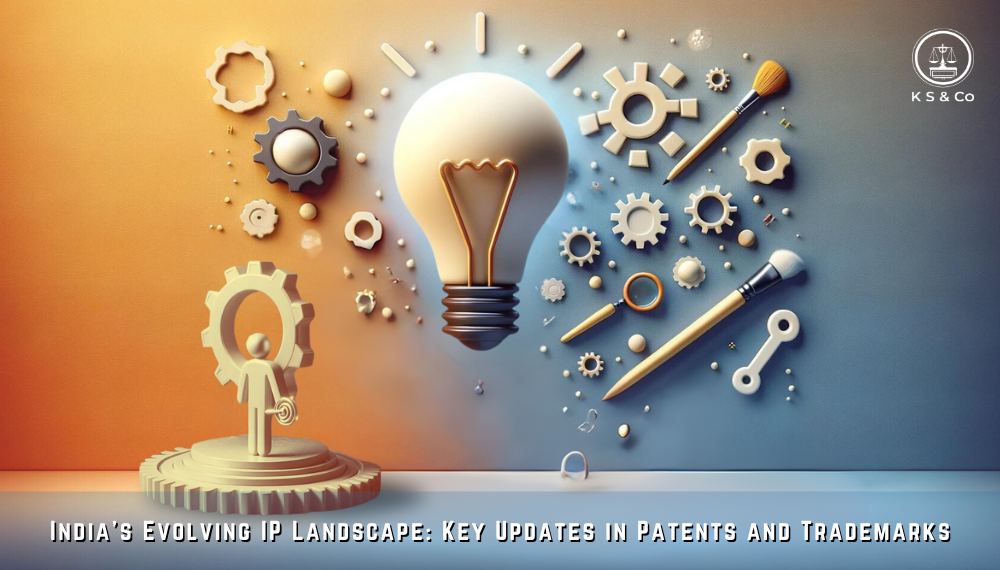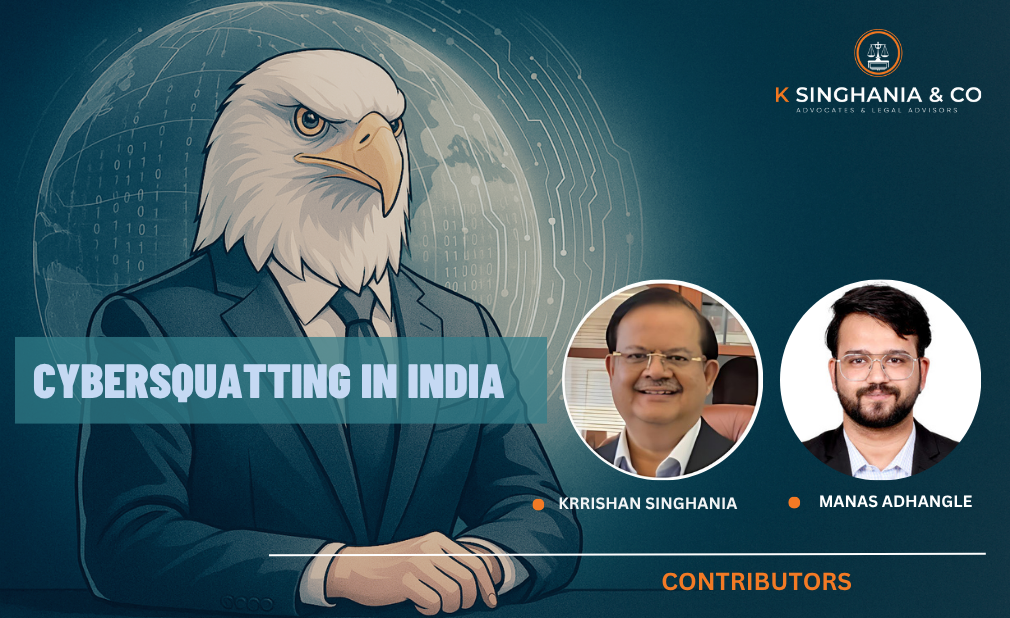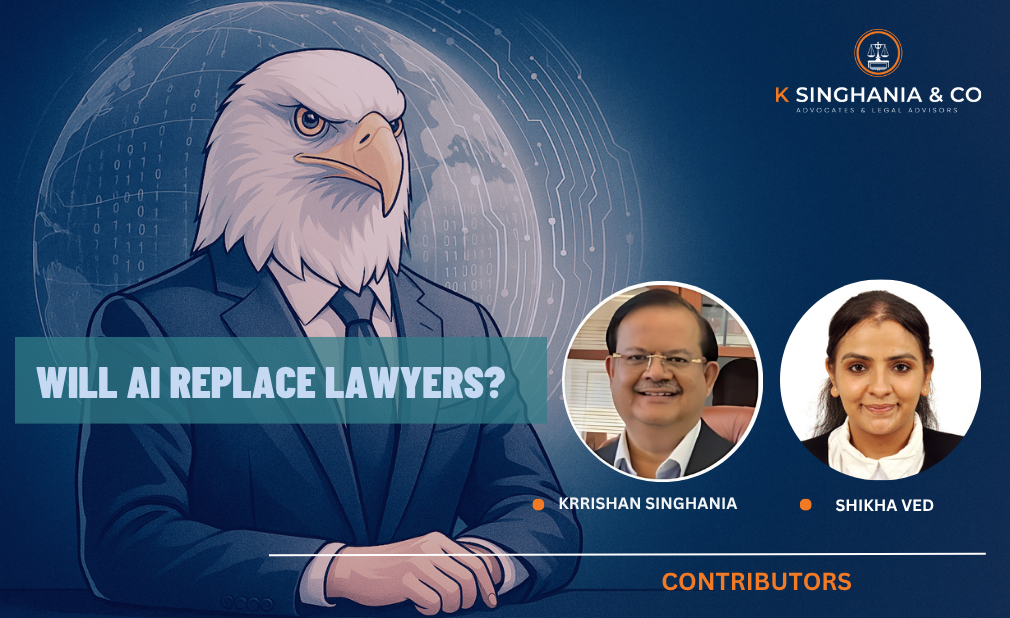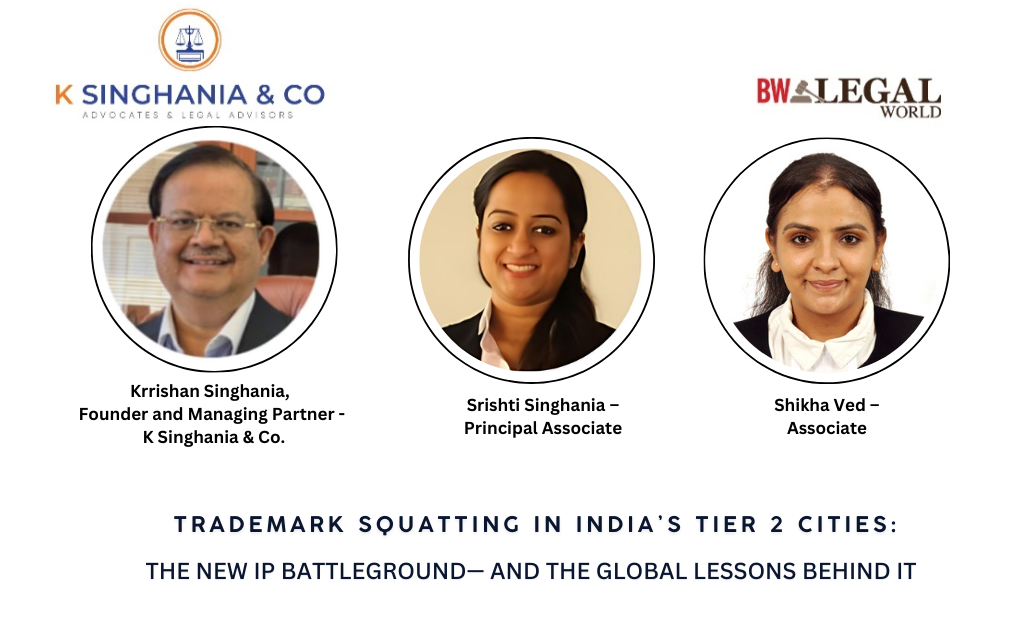With India emerging as a key market and manufacturing base, EU-based pharma companies are increasingly navigating India’s complex IP regime to protect innovation and ensure market access.
This edition highlights critical legal developments shaping the IP enforcement environment in India. Recent rulings from the Delhi High Court reflect a tightening stance on patent amendments, increasing emphasis on public interest in pharma injunctions, and even post-expiry revocation risks—underscoring the need for precise drafting, early local counsel involvement, and customized portfolio strategies.
Meanwhile, in the trademark arena, Indian courts continue to adopt a nuanced yet firm approach to brand protection. They are setting important precedents highlighting: (i) the court’s intolerance towards infringer’s disobedience of injunctive relief, (ii) awarding damages to the tune of INR 3.34 crores to curb counterfeiting of medical devices; and (iii) enforcing high threshold for ‘deceptive similarity’ for pharmaceutical trademarks, for safeguarding public health.
As India grows into a global R&D and commercial hub, these cases offer important lessons for IP holders navigating enforcement, licensing, and litigation risks. Our analysis provides strategic insights and practical takeaways for innovators, brand owners, and legal teams operating in or entering the Indian market.

Bombay High Court Reinforces IP Rights with Strong Penalty in Contempt
Aventis LLC v. Healing Pharma India Pvt Ltd & Ors
Overview
In a notable decision strengthening enforcement of intellectual property rights in India, the Bombay High Court held the defendants, Healing Pharma India Pvt Ltd and DM Pharma, guilty of contempt for violating a prior court order in a trademark infringement case concerning Aventis LLC’s well-known antihistamine drug, Allegra.
The ruling, delivered on 3 February 2025, reaffirms the judiciary’s intolerance toward wilful disobedience of injunctive relief and imposes a ₹5,00,000 (Rupees Five Lakhs) fine (approx. US$5,800 i.e., Five thousand eight hundred US dollars), with imprisonment of four weeks ordered in case of non-payment.
Facts of the Case
- In October 2020, Aventis (Sanofi Group) discovered the defendants were using the mark ‘Allergegra’, deceptively similar to ‘Allegra’, and selling antihistamines in identical variants and packaging.
- Aventis obtained an ex-parte injunction on 27 November 2020. Large quantities of infringing products were seized.
- On 1 March 2021, the court passed a consent decree, with defendants agreeing to cease all infringing activity.
- In 2022, Aventis found that defendants launched a product under the name ‘Algreat’ — a different name but using packaging nearly identical to Allegra’s.
- A contempt petition was filed. The defendants denied infringement, then later offered to alter the packaging but filed compliance only in 2024.
- Despite their claims, infringing products were found online even in 2025.
Issues before the Court
- Did the defendants violate the court’s 2021 decree by using deceptively similar packaging?
- Was their delayed compliance sufficient to avoid liability for contempt?
- Could the use of the mark ‘Algreat’ with near-identical trade dress constitute continued infringement under Indian IP law principles, especially the “safe-distance rule”?
Court’s Observations and Ruling
The Court answered these questions decisively in favor of Aventis, holding that:
- The defendants’ actions constituted wilful disobedience of the 2021 order.
- Their conduct demonstrated a pattern of disregard for the court’s authority, acting “with impunity” and taking remedial steps only when confronted.
- The Court applied the ‘safe-distance rule’, which mandates that any party previously found guilty of infringement must maintain a clear and unambiguous separation from the original mark.
- Merely changing the brand name from ‘Allergegra’ to ‘Algreat’ while retaining similar packaging was not sufficient to avoid liability.
- The Court imposed a ₹5,00,000 (Rupees Five Lakhs) approx. US$5,800 i.e., Five thousand eight hundred US dollars, penalty and directed imprisonment for four weeks if unpaid within the set deadline.
This follows a consistent trend, as seen in Pidilite Industries v Premier Stationery Industries (2024), where a ₹5 million fine was imposed for similar violations.
KS&Co Commentary:
Key Takeaways for Pharma & International Businesses
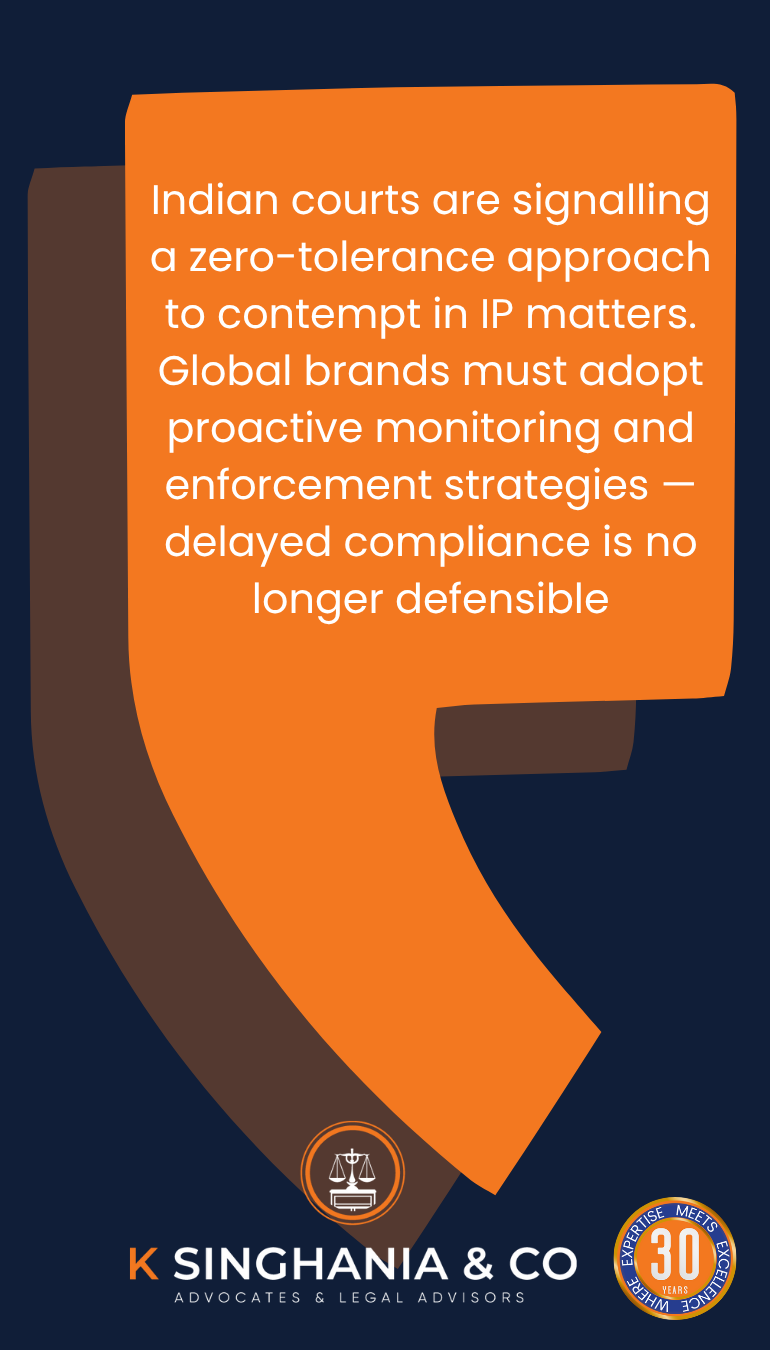
This judgment reinforces the serious legal risks of non-compliance with IP-related court orders in India. From a legal and commercial standpoint:
- Injunctions are not symbolic — Indian courts are prepared to enforce them with financial penalties and custodial sentences.
- The safe-distance rule is increasingly becoming a cornerstone of trademark enforcement in India. Pharma businesses must ensure that any new branding, packaging, or marketing fully complies with existing decrees, especially after IP disputes.
- For international pharmaceutical brands, this case highlights the need for proactive monitoring of Indian licensees, distributors, and competitors, to detect non-compliant behavior early.
- Timely and transparent action following any court order is critical — delayed compliance, even if eventually fulfilled, will not absolve past contempt.
Strategic Recommendations for Global Companies:
The Aventis v. Healing Pharma ruling underscores the importance of a strong IP enforcement strategy in India. Global companies, especially in the pharmaceutical sector, should consider the following key actions:
- Proactive Market Monitoring: Regularly monitor the Indian market—including online platforms—for infringing products. Early detection is essential for swift enforcement.
- Strengthen Contracts with Local Partners: Include robust IP clauses in agreements with distributors, licensees, and manufacturers. Contracts should require compliance with all court orders and prohibit similar branding or packaging.
- Enforce the Safe-Distance Rule: After a legal victory, ensure infringers do not re-enter the market with deceptively similar marks or packaging. Even slight variations may be insufficient under Indian law.
- Act Quickly on Non-Compliance: Delays in enforcement can weaken legal standing. Initiate contempt proceedings promptly if prior orders are violated.
- Leverage Legal Precedent: Use recent judgments imposing heavy penalties to strengthen your position in negotiations or legal action.
- Invest in Local IP Expertise: Maintain strong local counsel relationships and train in-house teams on Indian IP enforcement to ensure readiness for rapid legal action.
By integrating these strategies, global companies can better protect their brands and navigate India’s increasingly strict IP enforcement environment.
Delhi High Court Imposes ₹3.34 Crore Damages in Landmark Counterfeit Medical Devices Case
Johnson & Johnson v. Pritamdas Arora
Overview
In a significant ruling on 11 March 2025, the Delhi High Court delivered a stern message against counterfeit medical devices by awarding ₹3.34 crore (Rupees Three crore thirty-four lakh) which is approx US$400,800 in damages to Johnson & Johnson. The case underscores the escalating risks for pharmaceutical and healthcare companies operating in India, highlighting the judiciary’s firm stance on intellectual property violations that jeopardize public health.
Facts of the Case
- Plaintiff: Johnson & Johnson, a globally recognized pharmaceutical and healthcare company, through its subsidiary Ethicon, manufactures medical devices under the trademarks ‘SURGICEL’ and ‘ETHICON’.
- Defendants: M/s Medserve, a New Delhi-based company.
- Nature of Infringement: The defendants were found to be manufacturing and distributing counterfeit surgical devices bearing Johnson & Johnson’s trademarks. These counterfeit products were sourced from unauthorized third parties in China and Turkey, repackaged, and sold internationally, including to the University of Kentucky Medical Center in the United States.
- The court identified several grave offenses, including:
- Production and global distribution of counterfeit medical devices.
- Repackaging expired medical products with falsified expiration dates.
- Misleading customers and healthcare professionals by falsely applying Johnson & Johnson’s trademarks on counterfeit packaging.
- Engaging in hawala transactions to conceal illicit proceeds from counterfeit sales.
- Failure to appear in court and evasion of proceedings, demonstrating willful non-compliance with judicial orders.
Issues before the Court
- Whether the defendants’ actions constituted infringement of Johnson & Johnson’s registered trademarks?
- Whether the defendants engaged in counterfeiting and passing off activities, thereby misleading consumers and healthcare professionals?
- Whether the sale of counterfeit medical devices posed a significant threat to public health and safety?
- The appropriate quantum of damages and other reliefs to be granted to the plaintiff.
Court’s Observations and Ruling
The court’s observations and ruling were as follows:
- Grave Offense: The court emphasized that counterfeiting medical devices is not merely a case of trademark infringement but a grave offense that endangers lives. The defendants’ conduct demonstrated a deliberate effort to mislead the public, jeopardize consumer safety, and exploit consumer trust for financial gain.
- Permanent Injunction: A permanent injunction was granted, restraining the defendants from manufacturing, selling, or distributing any products under the trademarks ‘SURGICEL’, ‘ETHICON’, and ‘LIGACLIP’.
- Damages Awarded:
- Compensatory Damages: ₹2.34 crore (approx. US$280,800), representing 25% of the total sales revenue generated by the defendants from counterfeit products.
- Exemplary Damages: ₹1 crore (approx. US$115,900), to deter similar infringing activities in the future.
- Additional Reliefs:
- Destruction of Counterfeit Products: All counterfeit products seized from the defendants’ premises were ordered to be destroyed.
- Recovery of Litigation Costs: The defendants were directed to reimburse the plaintiff for actual litigation costs incurred.
- Bill of Costs: The plaintiff was required to file a bill of costs within four weeks to determine the exact litigation expenses incurred.
KS&Co Commentary: Key Takeaways for Pharma & International Businesses
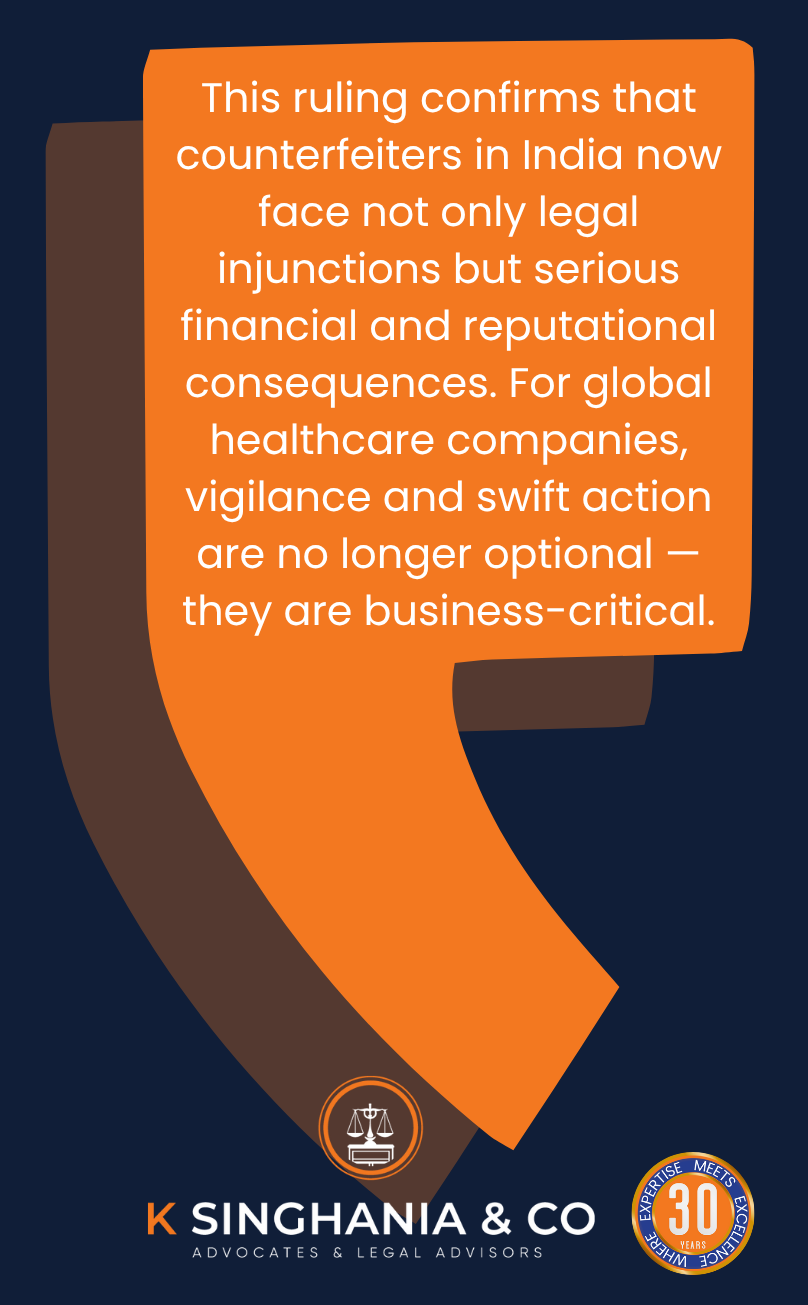
The Delhi High Court’s ₹3.34 crore (approx US$400,800) damages award in this case marks a significant shift in how Indian courts are responding to IP violations in the pharmaceutical and healthcare sectors. By granting both compensatory and exemplary damages, the judgment reflects a growing recognition that counterfeit medical products are not just trademark infringements but serious threats to public health. The court’s willingness to impose heavy financial penalties—alongside permanent injunctions, product destruction, and cost recovery—sends a strong deterrent message to infringers. For pharma and international businesses, this reinforces the need for vigilant IP enforcement and robust supply chain monitoring. The ruling confirms that courts are prepared to treat such violations with the urgency and gravity they deserve, especially when human safety is at stake.
Strategic Recommendations for Global Companies
This case sends a strong message about the risks of counterfeiting in the healthcare sector. To protect their IP and consumer safety in India, global companies should consider the following:
- Audit Supply Chains Regularly: Ensure full traceability and oversight of manufacturing and distribution partners to detect and prevent counterfeiting.
- Enhance Packaging Security: Use tamper-evident, serialized, or digitally verifiable packaging to distinguish genuine products from fakes.
- Act Swiftly on Infringement: Develop rapid response protocols for suspected violations, including civil and criminal legal options.
- Engage Enforcement Authorities: Partner with customs and regulators to block counterfeit imports and support seizure actions.
By taking these steps, companies can better safeguard their IP and reputation while reducing risk to public health.
Delhi High Court Grants Permanent Injunction in Favor of Himalaya Global Holdings Ltd. Against Trademark Infringement of ‘Liv.52’
Himalaya Global Holdings Ltd., v. Rajasthan Aushdhalaya Private Limited
Overview
The Delhi High Court has granted a permanent injunction in favor of Himalaya Global Holdings Ltd., restraining Rajasthan Aushdhalaya Private Limited and associated sellers from using the infringing mark ‘Liv-333’, which was found to be deceptively similar to Himalaya’s well-known ‘Liv.52’ trademark. The Court also imposed ₹30.91 lakh in costs and damages on the defendants, recognizing the continued infringement despite an earlier interim injunction.
Facts of the Case
Himalaya Global Holdings Ltd., the proprietor of the ‘Liv.52’ mark—a popular herbal liver care formulation—filed a suit for trademark infringement and passing off against Rajasthan Aushdhalaya Pvt. Ltd. and its associated sellers. The defendants were found to be marketing a liver care product under the name ‘Liv-333’, which closely resembled Himalaya’s mark in visual and phonetic terms.
Himalaya discovered the infringing product being sold across major e-commerce platforms such as Amazon, Flipkart, JioMart, and IndiaMart, supported by an invoice dated April 23, 2015, evidencing commercial use of the impugned mark. An ex-parte ad-interim injunction was granted on May 24, 2024, restraining the defendants from further sales; however, subsequent sales of ‘Liv-333’ continued unabated.
Issues Before the Court
- Whether the defendants’ use of the mark ‘Liv-333’ constituted infringement of the plaintiff’s registered trademark ‘Liv.52’.
- Whether the continued use of the infringing mark after the interim injunction warranted a higher degree of judicial intervention and imposition of damages.
Court’s Observations and Findings
Justice Mini Pushkarna, while delivering the judgment, underscored the heightened standard of scrutiny applicable to medicinal products, noting:
“Considering that the goods in question are medicinal products, even a minimal degree of confusion can have serious consequences for public health. The defendants’ unauthorized use of the impugned mark creates a likelihood of confusion among consumers, medical practitioners, and pharmacists.”
The Court noted that the defendants had deliberately imitated the essential component ‘LIV’ from the plaintiff’s mark, merely appending ‘333’ to create ‘Liv-333’, which did not sufficiently distinguish the mark.
“The use of the term ‘LIV’ as the essential element in both marks creates a high degree of similarity, leading to a likelihood of confusion among consumers. The mere addition of the numeral ‘333’ does not sufficiently distinguish the mark from the plaintiff’s trademark,” the Court stated.
Citing legal precedents, including:
- Himalaya Drug Company vs. S.B.L. Limited (2012 SCC OnLine Del 5701)
- Cadila Healthcare Ltd. vs. Cadila Pharmaceuticals Ltd. [(2001) 5 SCC 73]
The Court reiterated the stringent protection standards for pharmaceutical trademarks, particularly where confusion can lead to adverse health outcomes.
The Court also proceeded under Order 8 Rule 10 of the CPC, as the defendants failed to file a written statement, allowing for a summary judgment in favor of the plaintiff.
Costs and Damages
The Court awarded ₹30.91 lakh (approx US$36,129) to the plaintiffs as follows:
- ₹10.91 lakh (approx. US$12,760) as the cost of the suit payable to Himalaya Global Holdings Ltd.
- ₹20 lakh (approx. US$12,760) in damages, with ₹10 lakh each levied on Rajasthan Aushdhalaya Pvt. Ltd. and its associated sellers
KS&Co Comments
This decision reinforces the judicial commitment to protecting pharmaceutical trademarks, especially those with a legacy of consumer trust and market recognition. The Court’s emphasis on public health risks from consumer confusion, coupled with the strict action taken for contempt of interim orders, sends a strong deterrent signal to infringers in the medicinal space.
From an IP enforcement perspective, this case reiterates the importance of acting promptly against infringing entities and leveraging the judicial tools available—including ex-parte injunctions and summary judgments—to safeguard valuable brand assets. The recognition of the distinctiveness of the ‘Liv.52’ mark also reaffirms that numerical or minor phonetic alterations do not absolve infringement liability when the essential part of the mark is copied.
Strategic Recommendations for Global Companies
The ruling reinforces that even minor variations in medicinal trademarks can amount to infringement. Global companies should consider:
- Register Variants and Derivatives: Protect not just the primary mark but also foreseeable variations (e.g., numerical or hyphenated forms) to preempt mimicry.
- Leverage Consumer Recognition in Court: Emphasize legacy, trust, and market penetration when seeking judicial protection for well-known marks.
- Pursue Legal Action Even Without Defendant Participation: Courts may grant relief through summary judgment when infringers fail to appear—don’t delay enforcement.
- Use Interim Relief as a Foundation: Secure interim injunctions early and use subsequent violations to build a stronger damages claim.
This case affirms that courts will protect established pharma brands against even subtle attempts at brand imitation.

Patent Precision in India: Lessons from AbbVie’s setback for global pharma
AbbVie Biotherapeutics vs Controller of Patents (2025 SCC OnLine Del 2384)
Before the Hon’ble Delhi High Court
Summary
A recent decision by the Delhi High Court rejecting a post-filing amendment request by AbbVie Biotherapeutics Inc. has reaffirmed India’s tough stance on patent claim expansion. The Court held that AbbVie’s attempt to shift from a method-specific antibody patent to a broader product-level claim was impermissible under Section 59 of the Indian Patents Act 1970 (“Patents Act”).
This case underscores a vital lesson for foreign pharmaceutical, biotech and medtech firms in India. Overly narrow claims, if later broadened, are likely to be struck down, exposing the innovator to generic competition and loss of exclusivity.
The case at a glance
- Background – AbbVie Biotherapeutics filed a national phase patent application in India for “Anti-cMet Antibody Drug Conjugates and methods for their use”, claiming priority from a US patent. The original claims focused on therapeutic methods for treating cancers such as non-small lung cancer (NSCLC) using antibody drug conjugates (ADCs).
- Key Legal issues
- The Patent Office objected the claims as non-patentable under Section 3(i) – methods of treatment, and Section 2(1)(j) – lack of industrial applicability.
- AbbVie sought to amend the claims from methods of treatment to product/composition claims, arguing that these were within the scope of the original disclosure.
- Court’s finding – The Delhi High Court held that the amended claims exceeded the scope of the originally disclosed invention and were therefore not permissible. The Delhi High Court upheld the patent office’s refusal on the following grounds –
- The original method claims were excluded under Section 3(i) of Patents Act.
- The amendments were not mere clarifications or disclaimers, but broadened the scope impermissibly, violating Section 59(1) of the Patents Act.
- The appeal was dismissed, reinforcing the strict approach to claim amendments and the exclusion of treatment methods from patentability in India.
- Key legal provisions – Section 59 of the Patents Act permits amendment only if they are by way of disclaimer, correction, or explanation and do not add matter beyond what was disclosed.
- Outcome – AbbVie’s amendment request was denied. The patent remained confined to its originally narrow scope which served to be a serious blow to its enforcement strategy in India.
Key language from the judgement – “Any amendment which introduces new matters or claims something not originally disclosed is impermissible under Indian law”.
Legal Implications for EU-based innovators
India has stricter rules for amending patent claims than Europe. While the European Patent Office (EPO) may allow some flexibility, as long as the changes are clearly supported (even implicitly) in the original application. However, Indian law requires that any amendments be explicitly mentioned in the original filing. Even a small or an obvious change is not allowed, if it was not clearly stated from the start during the application stage.
This difference between the patent offices of India and EU can surprise international companies, especially if they treat Indian Patent filings as an extension of their European or US Applications. In India, each filing needs to stand on its own, with carefully drafted claims from the very beginning.
Commercial Risk Assessment
- Market Access at risk – if a patent in India is too narrow and does not cover how the product is actually used or sold in the market, it may not stop the other companies from launching similar products.
- Cost of litigation – if a patent is weak and gets challenged, it can lead to long and expensive court cases.
- IP value Erosion – Global companies may lose out on licensing opportunities or deals if their Indian patents are not strong and well drafted from the beginning.
Strategic Recommendations for global companies
- Audit existing patent portfolios in India – check if your current Indian patents truly protect your business plans, product types, and future ideas.
- Treat Indian Patents as primary filings – Avoid simply replicating US/EU Claims. Draft Indian applications to meet India-specific disclosure expectations.
- Leverage divisional applications wisely – if your patent includes more than one invention, file separate (divisional) applications. This helps to keep a backup option without breaking any Indian rules.
- Engage Indian patent counsel at Drafting Stage – Early involvement of Indian patent counsel ensures claim language aligns with Indian Patent Office (IPO) practices and judicial trends.
- Monitor Competitors filings and oppositions – India offers both pre-grant and post-grant opposition mechanisms. Safeguard the patent specifications properly so no one opposes the scope of the patent post-grant.
Why this case matters?
India is not just a market, it has become a global manufacturing and R&D powerhouse. With rising patent litigation activity and increase in generic players, foreign companies must take a proactive and localized IP approach.
This case sets a cautionary precedent, that one misstep in claim drafting or amendment strategy can nullify years of investment. As India’s role in the global pharmaceutical supply chain grows, protection of Intellectual Property has become a necessity.
Access over exclusivity – Roche’s Injunction denial and the realities of Pharma Patent Enforcement in India
Hoffmann-La Roche AG and Anr vs Natco Pharma Ltd. (2025 SCC OnLine Del 1826)
Before the Hon’ble Delhi High Court
Summary
In a pivotal decision issued by the Hon’ble Delhi High Court in March, 2025, Swiss pharmaceutical giant F. Hoffmann-La Roche AG was denied an interim injunction against Indian generic manufacturer Natco Pharma Ltd., which had launched a generic version of Risdiplam, a treatment for Spinal Muscular Atrophy (SMA).
Despite holding a granted Indian patent, Roche’s enforcement attempt failed at the interim stage, not due to invalidation, but because of credible challenge to patentability and the critical nature of the drug to public health.
For pharmaceutical innovators, this case is a clear reminder that Indian courts often subordinate IP exclusivity to issues of affordability and access, especially in life saving therapeutic areas.
Breakdown of the case
- Background – Roche sought an interim injunction to restrain Natco from manufacturing and selling a generic version of Risdiplam, a drug for Spinal Muscular Atrophy (SMA). Roche argued its patent was valid, novel and that Natco’s actions constituted infringement.
- Natco’s defense – Natco argued that Roche’s patent lacked an inventive step and was anticipated by prior art which is usually a standard defense under Section 2(1)(j), Section 2(1)(ja) and Section 64 of the Patents Act.
- Key legal issues
- Natco challenged the validity of Roche’s patent, contending that the genus patent had already disclosed Risdiplam, making the suit patent obvious and anticipated.
- Natco also emphasized public interest, affordability, and the need for domestic manufacturing of the drug.
- Court’s observation – The Hon’ble Delhi High Court denied Roche’s request for an interim injunction on the following grounds –
- The court found a credible challenge to the validity of Roche’s patent on grounds of anticipation and lack of inventive step.
- It held that public interest in affordable access to the only approved SMA treatment in India outweighed Roche’s patent enforcement rights.
- The court noted that Roche’s losses could be compensated by damages, if it ultimately prevailed, whereas denying the generic would deprive patients of life-saving treatment.
Legal Insights: India’s Balancing Act Between Patent Rights And Public Interest
Indian Courts apply a three-pronged test when deciding on interim injunctions in IP matters:
- Prima facie case for the patentee
- Balance of convenience in favour of the applicant, and
- Irreparable harm if relief is denied.
In pharmaceutical matters, an unwritten fourth factor increasingly dominates, which is “Public interest in access to affordable medicines”.
Even when a patent appears legally enforceable, if access becomes significantly important, courts are hesitant to halt generic launches especially in orphan diseases (extremely rare diseases) and chronic therapy areas. In such situations, it is pertinent to note that “injunctions are no longer procedural, they are political and public health-sensitive decisions”.
Strategic recommendations for global pharma companies
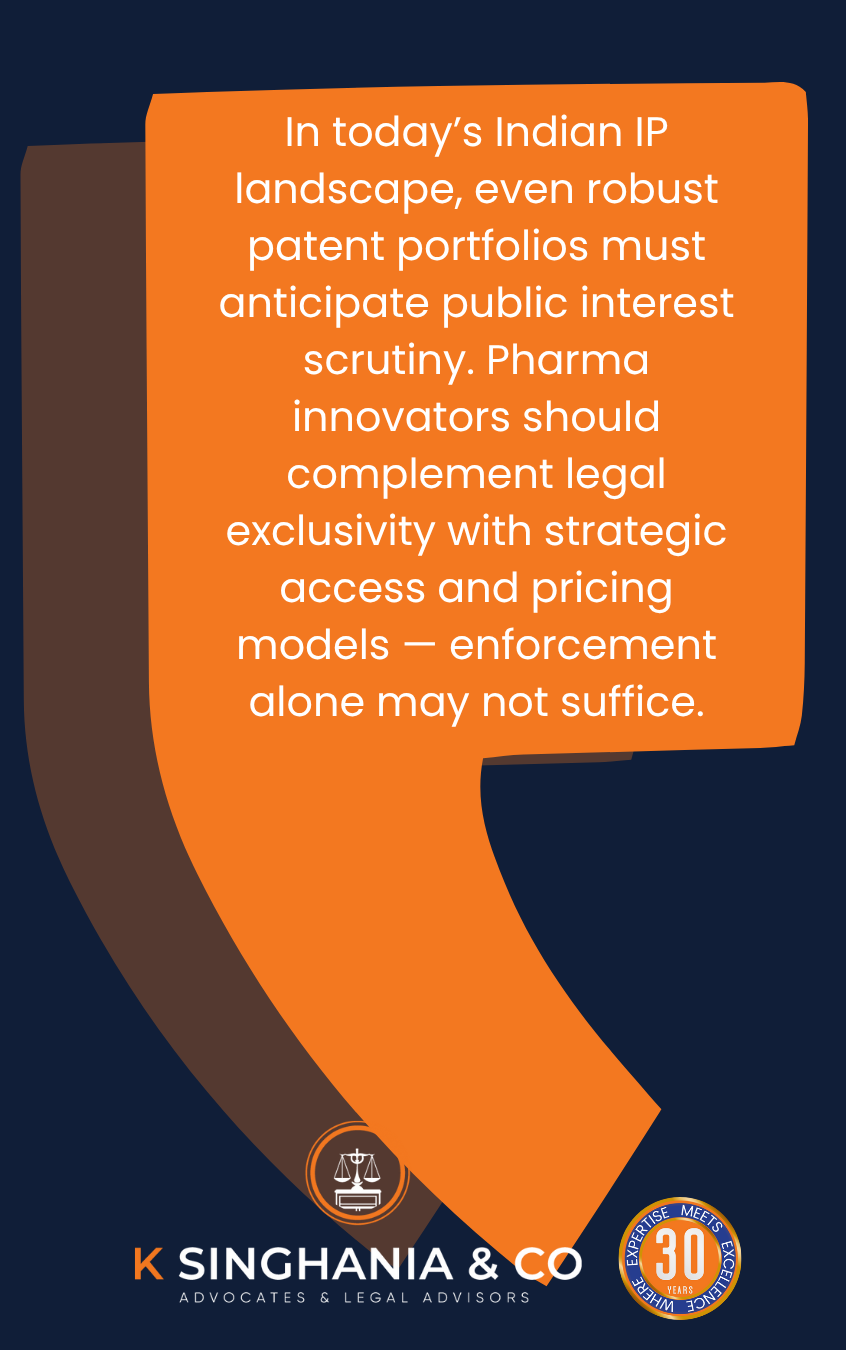
- Build robust patents with inventive steps in mind – Develop patent with full awareness of Section 3(d) of the Patents Act which provides that a new form, property, or use of a known substance is not patentable unless it enhances the substance’s known efficacy or result in a new product using at least one new reactant.
- Plan for access early- Adopt tiered pricing, voluntary licensing, or CSR supply models. These defuse “public interest” objections during litigation.
- Invest in local enforcement – Consult Indian attorneys before launching or filing your patent. Also involve them in preparing cease and desist letters, or pre-litigation notices.
- Monitor compulsory licensing – Even if not formally requested, Indian courts sometimes apply compulsory licensing reasoning. This includes prioritizing access and affordability over IP enforcement when deciding injunctions. For this, companies need to anticipate where the drugs might be vulnerable, for instance, if a drug is relating to the cure of a rare disease, focus should be made to make it more accessible and affordable for the public in general.
Why this case matters?
This case continues a decade long trend of Indian Courts recalibrating patent enforcement through a socio-economic lens. Courts are reluctant to grant injunctions where public health is involved, especially when the patented invention does not clearly surpass known compounds in efficacy, or where price vs need becomes a factor.
For innovators looking to protect high-investment therapies in India, the message is unambiguous – “Legal exclusivity must be complemented by commercial accessibility”.
Revocation After Expiry: The Linagliptin Patent Precedent
Macleods Pharmaceuticals Ltd. Vs Boehringer Ingelheim (2025 SCCOnline Del 118)
Before the Hon’ble Delhi High Court
Summary
In a pivotal ruling in January 2025, the Hon’ble Delhi High Court allowed Macleods Pharmaceuticals Ltd. to file a revocation petition against a patent held by Boehringer Ingelheim even though the patent had already expired. The court held that statutory revocation under Section 64 of the Patents Act is independent of whether the patent is active or invalidity has been raised elsewhere.
For global pharma companies, this means exposure in India now extends beyond expiry, especially where infringement damages or licensing rights are in question.
Breakdown of the case
- Background – The legal dispute between Macleods Pharmaceuticals and Boehringer Ingelheim centers on Indian Patent No. IN 243301 for the anti-diabetic drug LINAGLIPTIN. Though the patent was granted in October 2022 and expired in August 2023, Macleods filed a revocation petition under Section 64(1) of the Patents Act, before the expiry, in February 2022, anticipating future infringement issues. Boehringer responded with an infringement suit.
- Key legal issues –
- Revocation vs Invalidity Defense – Boehringer argued that Macleods, having raised an invalidity defense in the infringement suit, should not pursue a separate revocation petition. Macleods responded that revocation under Section 64 of the Patents Act, and invalidity defense under Section 107 are distinct – revocation is an in rem remedy, not limited to the parties in the suit.
- Revocation after patent expiry – Boehringer contended that a revocation is not valid post-expiry and that Macleods is no longer a “person interested”. Macleods responded to this stating that the ongoing infringement litigation gives them continuing legal interest and that there is no time bar for being a person interested as per the Patents Act.
- The court’s observation – The court gave the following decision –
- The revocation petition was declared maintainable, regardless of the parallel invalidity defense in the infringement suit.
- Revocation petitions can be filed or sustained post-expiry if a legal interest (such as an ongoing infringement suit) persists.
- Revocation under Section 64 (in rem) is distinct from an invalidity defense under Section 107 (in personam), as a successful revocation petition effaces the patent from the register, whereas an invalidity finding in an infringement suit does not automatically revoke the patent.
- The implication – Even expired patents can be retrospectively invalidated, which can affect past enforcement, licensing or royalty claims.
Legal takeaway
Patent expiry in India does not close the door on revocation. Courts may still allow challenge to an expired patent especially if the outcome influences damages, royalty disputes, or the broader legal status of related products.
Business risks
- Licensing impact – Royalties paid under a now-revoked patent may come under challenge.
- Ongoing litigation – expired patents can still affect active cases and defenses.
- Reputational risks – a revocation post-expiry could undermine your portfolio’s credibility, particularly in emerging markets.
Strategic Actions
- Audit all the expired patents that are still in litigation, have been licensed or are in the revenue stream in India. This helps to identify legal exposure. If an expired patent is under dispute or linked to ongoing royalties, it can still be challenged. An audit ensures you are not caught off guard by a revocation that could impact your revenue or legal position.
- Ensure strong filing history and documentation. Any weakness in the patent application may invite post-expiry revocation. Accurate original records such as specifications, prosecution history, prior art disclosure, helps in defending revocation claims.
- Update litigation risk assessment to factor in expired IP. Many companies stop tracking potential risks once a patent expires. But this judgement shows that expired patents can still be challenged. Including them in your litigation watchlist ensures timely response and better legal preparedness.
Why this case matters
This ruling in Macleods Pharmaceuticals Ltd vs Boehringer Ingelheim clarifies that –
- Revocation petitions and invalidity defenses are separate and independent remedies under Indian law.
- The expiry of a patent does not preclude a revocation petition if the challenger retains a legal stake, such as defending an infringement suit.
- The decision strengthens the ability of generic manufacturers to challenge questionable patents, even post-expiry, ensuring fair competition in the pharmaceutical sector.
Conclusion
India’s IP jurisprudence continues to evolve — with courts taking a stricter view on patent claim amendments, enforcing high standards in trademark protection, and balancing enforcement with public health imperatives. For global companies and innovators, the message is clear: success in the Indian market requires not only strong IP assets but also proactive, locally informed enforcement strategies. At K Singhania & Co., we remain committed to helping clients anticipate legal trends and safeguard their intellectual property as India’s innovation and commercial ecosystem grows ever more dynamic.

